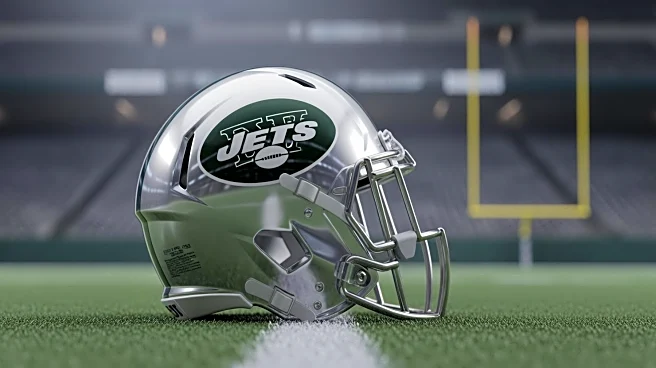What's Happening?
The Dallas Cowboys, led by owner Jerry Jones, have made a controversial trade for New York Jets' star defensive tackle Quinnen Williams. Despite the team's disappointing 3-5-1 record, Jones proceeded with
the trade before the NFL deadline, using a first-round draft pick acquired from the Green Bay Packers in a previous trade involving Micah Parsons. The Cowboys also sent a 2026 second-round pick and tackle Mazi Smith to the Jets as part of the deal. The move has been met with criticism from sports analysts, including Bill Simmons, who questioned the logic behind the trade given the Cowboys' current standing and playoff prospects. The trade is part of a larger series of transactions by the Jets, who also traded All-Pro cornerback Sauce Gardner to the Indianapolis Colts.
Why It's Important?
The trade is significant as it highlights the Cowboys' urgent need to bolster their defense, which ranks poorly in yards and points allowed per game. Despite having a strong offensive lineup, the team's defensive struggles have been a major hindrance to their success this season. The acquisition of Williams is seen as an attempt to address these issues, although critics argue that the trade may not be enough to turn the team's fortunes around. The decision to trade away valuable draft picks and players like Micah Parsons has raised concerns about the team's long-term strategy and ability to compete effectively in the playoffs.
What's Next?
The Cowboys will need to assess their defensive lineup and make further adjustments to improve their performance. The trade deadline has passed, limiting their options for immediate changes, but the team may explore other avenues to strengthen their defense. The impact of the trade on the Cowboys' playoff chances remains uncertain, and the team will need to focus on improving their record in the remaining games of the season. The Jets, having made significant trades, will also be closely watched to see how their new lineup performs.
Beyond the Headlines
The trade raises questions about the Cowboys' management and decision-making processes, particularly in terms of balancing short-term gains with long-term planning. The criticism from sports analysts reflects broader concerns about the team's strategic direction and ability to compete at a high level. The move also highlights the competitive nature of the NFL, where teams are constantly seeking to improve their rosters and gain an edge over their rivals.











